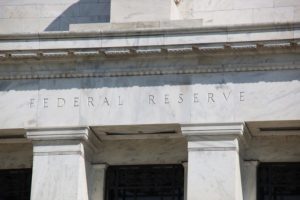Why the Lousy Jobs Report Boosted Wall Street
How can bad news on Main Street (only 113,000 jobs were created in January, on top of a meager 74,000 in December) cause good news on Wall Street? pacogaitero (CC BY-NC-SA 2.0)
pacogaitero (CC BY-NC-SA 2.0)
This post originally ran on Robert Reich’s Web page.
The stock market surged Friday after the lousy jobs report. The Dow soared 160 points, while the S&P 500, and Nasdaq also rose.
How can bad news on Main Street (only 113,000 jobs were created in January, on top of a meager 74,000 in December) cause good news on Wall Street?
Because investors assume:
(1) The Fed will now continue to keep interest rates low. Yes, it has announced its intention of tapering off its so-called “quantitative easing” by buying fewer long-term bonds in the months ahead. But it will likely slow down the tapering. Instead of going down to $55 billion a month of bond-buying by April, it will stay at around $60 billion to $70 billion.
(2) The slowdown in the Fed’s tapering will continue to make buying shares of stock a better deal than buying bonds – thereby pushing investors toward the stock market.
(3) Continued low interest rates will also continue to make it profitable for big investors (including corporations) to borrow money to buy back their own shares of stock, thereby pushing up their values. Apple and other companies that used to spend their spare cash and whatever they could borrow on new inventions are now focusing on short-term stock performance.
(4) With the job situation so poor, most workers will be so desperate to keep their jobs, or land one, that they will work for even less. This will keep profits high, make balance sheets look good, fuel higher stock prices.
But what’s bad for Main Street and good for Wall Street in the short term is bad for both in the long term. The American economy is at a crawl. Median household incomes are dropping. The American middle class doesn’t have the purchasing power to keep the economy going. And as companies focus ever more on short-term share prices at the expense of long-term growth, we’re in for years of sluggish performance.
When, if ever, will Wall Street learn?
Your support matters…Independent journalism is under threat and overshadowed by heavily funded mainstream media.
You can help level the playing field. Become a member.
Your tax-deductible contribution keeps us digging beneath the headlines to give you thought-provoking, investigative reporting and analysis that unearths what's really happening- without compromise.
Give today to support our courageous, independent journalists.






You need to be a supporter to comment.
There are currently no responses to this article.
Be the first to respond.